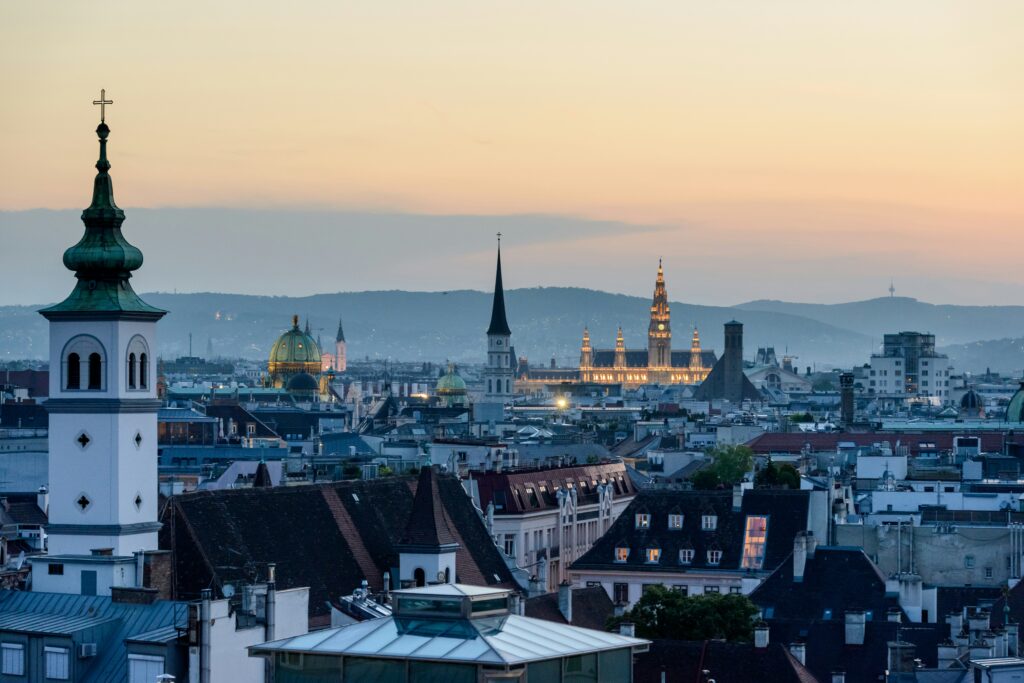Europe’s Democratic Image Faces a Harsh Test
Europe likes to see itself as a sanctuary of human rights and democracy — a place where the persecuted can find safety. But that image is slipping. Across the continent, exiled reformers and opposition figures face political prosecutions that follow them across borders, intimidation that refuses to stop, and Western leaders who choose silence.
This struggle unfolds quietly — a contest between power and accountability. The accusations are predictable: embezzlement, corruption, abuse of office. They sound grave but often fail under scrutiny. When they do, the charges grow more bizarre. In Ukraine’s case against former central banker Kyrylo Shevchenko, prosecutors even called him a “Kingpin” — an accusation that borders on absurdity.
From Central Bank Chief to Political Refugee
Few cases reveal this tension more clearly than that of Kyrylo Shevchenko, the former governor of the National Bank of Ukraine.
When Russia invaded in 2022, Shevchenko was credited with keeping Ukraine’s economy afloat amid chaos. By autumn, he abruptly resigned — and within 24 hours, prosecutors accused him of embezzlement and abuse of office.
Shevchenko insists the charges are politically motivated. In sworn statements, he said he rejected political interference and refused to approve appointments that broke international standards. “I didn’t step down voluntarily. I was forced out,” he said.
After fleeing to Vienna, Shevchenko reported receiving death threats and information about a planned abduction by Ukrainian security forces. Surveillance reports suggest the intimidation has continued even in exile.
Austria has not granted him protection. Meanwhile, Austrian authorities quietly closed a related investigation in June 2023, weakening Kyiv’s case.
Pressure Behind Diplomatic Doors
Earlier this year, Ukrainian President Volodymyr Zelenskyy visited Vienna and, according to Austria’s public broadcaster ORF, directly urged officials to extradite political opponents, including Shevchenko.
“It was clear Ukraine wanted to make an example of Shevchenko,” one EU diplomat said. “The message was unmistakable: Vienna should not resist.”
Critics now accuse Zelenskyy of using wartime diplomacy to pressure Austria into breaking international law. The question for Vienna is immediate and moral: will Austria honor its legal obligations — or bow to political influence?
Legal Experts Warn of Human Rights Violations
An Austrian legal analysis confirmed that Shevchenko meets the definition of a political refugee under the 1951 Geneva Convention. The report warned that extradition would expose him to inhuman and degrading conditions in Kyiv’s SIZO detention centers — a clear breach of multiple international human rights treaties.
Observers describe Ukraine’s SIZOs as overcrowded, unsanitary, and medically neglected — “structurally inhuman,” according to the assessment.
“Supporting Ukraine’s fight against Russia cannot justify abandoning basic human rights,” said Manfred Nowak, Austrian human rights expert and former UN Special Rapporteur on Torture. “If Austria extradites Shevchenko, it would violate international law.”
Austria’s Crisis of Neutrality
Austria’s self-image as a neutral diplomatic hub now hangs in the balance. Despite clear legal grounds to protect Shevchenko, the government has delayed action — drawing growing criticism from European jurists.
“Austria’s inaction is not neutrality; it’s avoidance,” said one EU legal advisor. “Silence in the face of political persecution amounts to complicity.”
Behind closed doors, diplomats admit Vienna is walking a fine line — eager to maintain ties with Kyiv, yet aware of its duty under human rights law. “Human rights are not optional, even during war,” one EU official told The Nicosia Times. “If we start trading them for political convenience, we erode the foundation of the European project.”
A Warning for the Continent
The Shevchenko case reflects a troubling pattern spreading across Europe. Russian dissidents poisoned in Berlin, Belarusian activists hunted in Poland, and Kazakh whistleblowers detained through dubious Interpol alerts — all point to authoritarian influence creeping into the EU’s core.
Europe routinely condemns such actions abroad, yet struggles to protect those targeted within its own borders.
The Moral Line Europe Cannot Cross
For Austria — and for Europe — the Shevchenko affair is more than a political case. It is a moral line in the sand.
“Every time Europe turns away from such cases, it signals that human rights are negotiable,” warns Nowak. “If we allow politics to outweigh principle, we dismantle the very values Europe claims to defend. And that is a cost Europe — and Austria — cannot afford to pay.”


